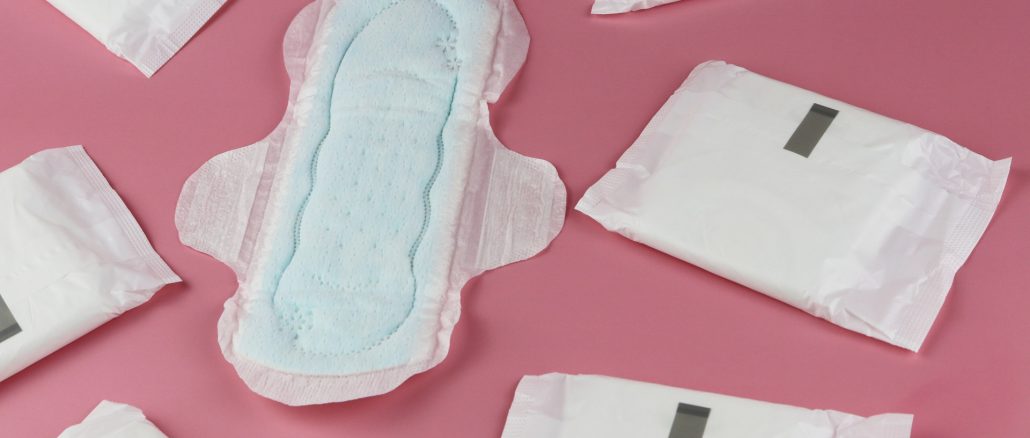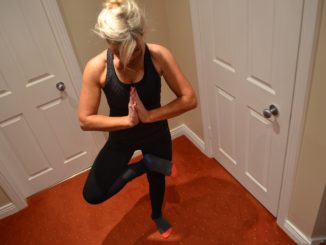
[dropcap]P[/dropcap]eriod poverty is defined as not having access to the products necessary during a period, such as tampons, sanitary pads, menstrual cups or pain relief.
It is also described as a lack of access to menstrual hygiene education, waste management and hand washing facilities.
Period poverty Is a direct result of the bigger picture of poverty and low income, that can be seen throughout society. Additionally, there has been shame and stigma attached to menstruation for many years, although it is a perfectly normal bodily function.
According to a report published by the Department of Health and the Department of Children, Equality, Disability, Integration and Youth, it is estimated that approximately 85,000 people in Ireland who menstruate are at risk of period poverty.
According to the government report published in February 2021, annual costs of period products per woman are estimated at €96.72, with the inclusion of pain relief, the cost per annum was estimated at €121.
For women living in Direct Provision, they receive €38.80 weekly from the state, this equates to approximately €465 annually. This demonstrates why women across the country are forced to forego period products, due to the expense.
Tampons and sanitary pads are not taxed in Ireland, but sustainable alternatives like the menstrual cup are taxed at the highest rate at 23%.
“No woman, girl, intersex, trans or non-binary person who menstruates, should have to exclude themselves from the activities of daily living during menstruation or suffer the physical and mental health impacts resulting from both recurrent exclusion and the use of unsuitable period products,” stated Roderic O’Gorman, Minister for Children, Equality Disability, Integration and Youth.
According to a Plan International survey, 50% of Irish girls surveyed between 12 and 19 years of age have experienced issues around affordability of sanitary products. Inaccessibility to period products was found to be a cause of stress for young Irish girls.
The survey found that 61% have been forced to miss school due to their period. 1 in 2 girls didn’t feel that the education received in schools was adequate for providing information about their period.
In April 2020, Lidl Ireland became the world’s first major retailer to offer free period products in their stores throughout the country for females affected by period poverty.
Lidl have been a sponsor of Ladies Gaelic Football Association for a number of years. They are now working with the LGFA to provide period products to clubs across the country.
“Lidl’s new initiative comes in advance of anticipated Irish legislation and implementation of supporting measures,” they stated.
A number of Irish universities and their student unions have taken the initiative to provide their students with access to free period products across campus.
Access to free period products are now available in University College Dublin, The National College of Art and Design, Dublin City University, Trinity College Dublin and Munster Technological University.
Period products are available across DCU Glasnevin and St Patrick’s campus in ground floor female and gender neutral bathrooms, DCU Health Centre and the Students’ Union.
Reusable period products such as menstrual cups will also be provided for students that are experiencing financial difficulties.
DCU have also opted to include a postal service for period products in order to ensure that students that may be on placement, or those with health and accessibility concerns are guaranteed access.
DCU SU have stated that period products should be as readily available and freely accessible as soap, toilet paper, and hand sanitiser.
They have also called on the government to support progressive period poverty legislation to ensure products are available in all public institution buildings.
“Our mission in DCU is to transform lives and society. No student should have to worry about access to basic necessities,” said Dr. Claire Bohan, Director of DCU Student Support and Development.
“By providing this service, we are taking one more concern out of their lives and are helping those students who need this service focus on things that matter most at University – learning, building lifelong friendships and developing themselves to their fullest potential,” she said.
Speaking to The College View, Dean O’Reilly, VP for Wellbeing said, “DCU SU have provided free period products to students for years.”
“However, to truly dismantle period stigma and poverty, students need to be able to access products without the need to ask. That is the ultimate aim of our general and postal distribution services,” he stated.
Volunteer led groups like Homeless Period Ireland are paving the way for a better, safer future free of period poverty.
The Homeless Period Ireland initiative was established in 2016, by their CEO Claire Hunt. The organisation are 100% reliant on volunteers and donations from the public.
“It was initially called Homeless Period Dublin, we then changed the name to Homeless Period Ireland because obviously there is a need, not just in Dublin, poverty exists all over the country,” according to Claire Hunt.
They donate period products to women in homelessness, women involved in prostitution, drug rehabilitation centres, domestic refuges and direct provision centres.
Their hope is to not exist at all, but in order for this to be possible the Irish government must proceed to enact legislation similar to countries like Scotland.
Kathleen Keane
Image Credit: Pixabay



